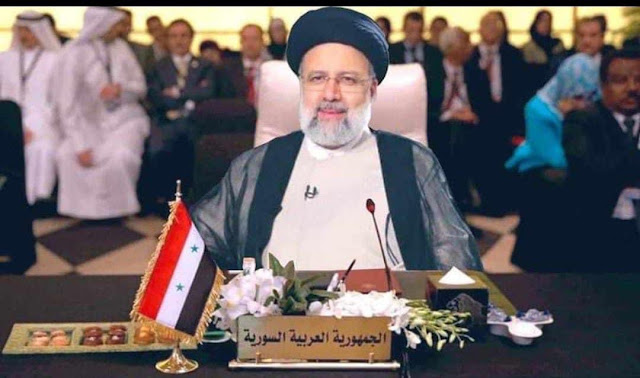Arab Normalization with Syrian Regime: A Victory for Iran or Loss for Arabs?
One hard thing for political analysts and researchers when they find difficulty in understanding or analyzing some political development or course of action. A lot of ink has been spilled lately by political analysts and commentators trying to explain the unexpected and inexplicable decision of the Arab League to re-admit the Syrian regime after 12 years of suspension because of the atrocities committed by this regime against the Syrian people among other causes according to the suspension decision along with a started Arab normalization course with the Syrian regime. I am trying to explain this decision by spelling major reasonable causes and eventually derive the strategic significance of this political development.
- First thing to do here is to ask about what has changed in the context of the Syrian crisis and the suspension decision. The answer is nothing except for the military victory of the Syrian regime against the opposition's factions. The pertaining question will be about the willingness of the Arab states to concede and politically acknowledge a semi-military victory, as considerable territories are still out of the Syrian regime's control, especially as the political crisis is still active at the domestic and international levels and still lacks any kind of political settlements. So, conceding for free is not likely the motivation for the Arab re-admittance decision and normalization course.
- Captagon is an issue that can be dealt with in various ways that does not need to change the political landscape in the region of course. However, Captagon huge shipments are not stopped yet according to concerned states disclosures and will not be soon as it became linked to war economy with sophisticated very wide infrastructure, stakeholders and beneficiaries. We learned from previous international experiences that such businesses and economic activities are sustainable and persistent and need decades to be dealt with in some way or another with moderate expectations in success cases. So, Captagon combating cooperation can not be the motivation for such political development like this normalization and rearrangement of geopolitical scene with reinstating the Syrian regime in the regional order. This would be irreasonable in political terms and practice.
- Can this normalization be a part in a settlement plan of the Syrian crisis? If so, it should be in the closing parts or later moves of such plans or agreements not in the advance or initiating measures because this in fact abolishes the entire plan as it eliminates the reciprocality when it delivers the stakes in advance. This is quite foolish and meaningless in political practice.
- The only reasonable and realistic explanation I could find in my research is of strict political nature. I do think that is related to Chinese-brokered Iranian-Saudi rapproachment agreement, and I believe that is a part of it. In fact, the Iranian president's visit to Damascus with its timing and rhetoric is actually supporting this suggestion. The only criticism that can be directed at this perspective is the yet absent advantage the Saudis should have obtained in Yemen through this trade-off with Iran.
We may need some time to clear the ambiguity of this Saudi-led Arab new deal in Syria. Meanwhile, for the time being we can discuss the derived strategic implications of this course of action.
- How far the damage we may expect in the Middle East prompted by Biden administration's policies before it leaves? It becomes more obvious day by day the rising influence and roles of primarily China and secondly Russia in the Middle East along with the more assertive and strengthening Iranian regional position and role. This will eventually lead to a geopolitical change in the region and consequently a new regional order.
- Political actions and new deals like this Saudi-led Arab normalization and Arab League reinstatement of the Syrian regime will be futile at best if not counterproductive without a definite political context and significance, which their existence are requisite to deliver pre-set political objectives. Without these conditions, it is much probably that this Arab new policy towards the Syrian regime would not have considerable effects in Syria beyond the moral sphere, especially considering the actual reality of Iranian power and presence in Syria.
The only effect of this Saudi-led Arab action so far is the recognition and acknowledgement of the Iranian victory in Syria and pressuring the Syrian people to deal with this reality.
To be continued.
Stay tuned to my Twitter, NeoInternationalism website and Middle East Policy blog for the analysis of the exciting developments in the world and regional politics.



